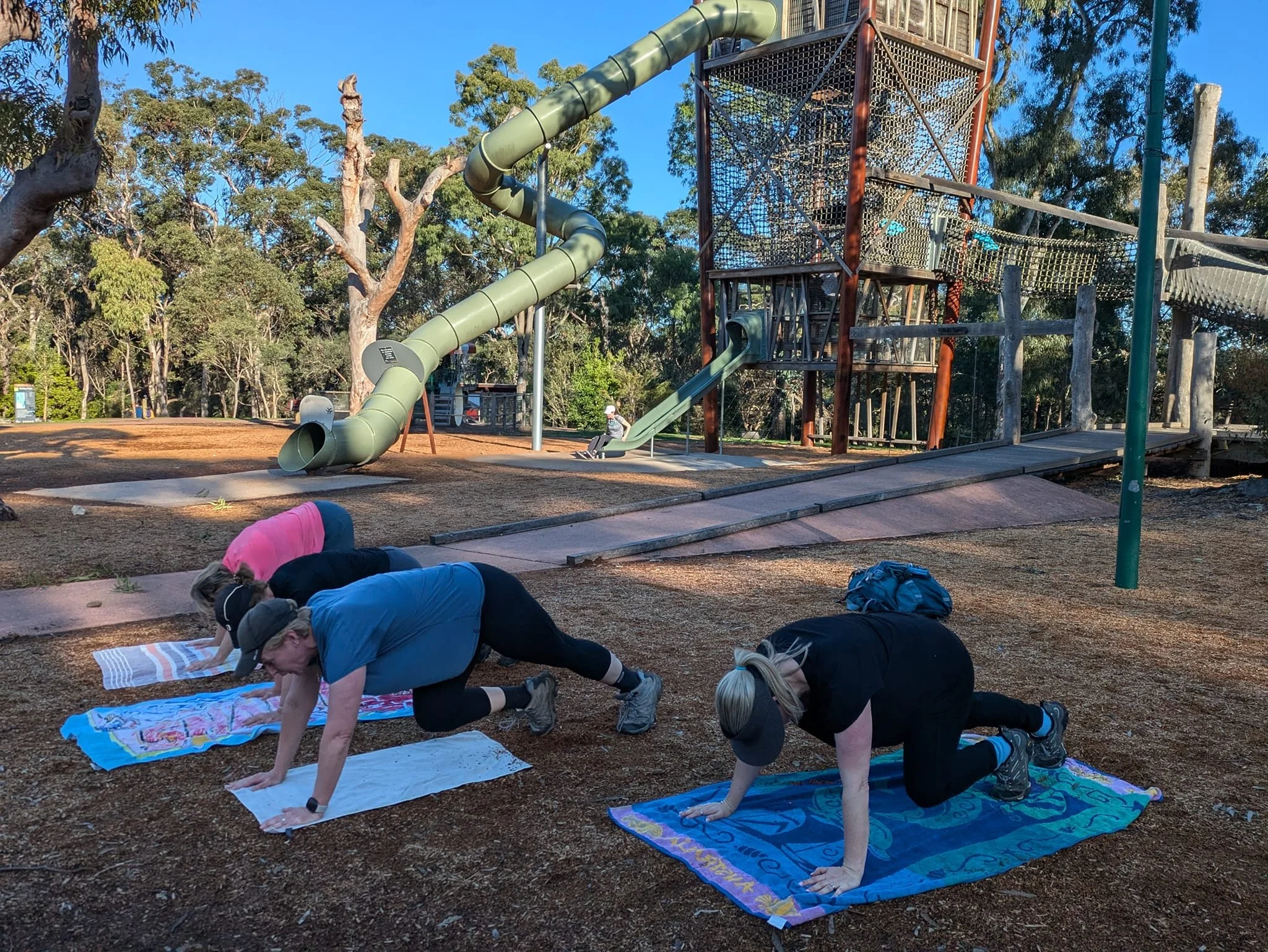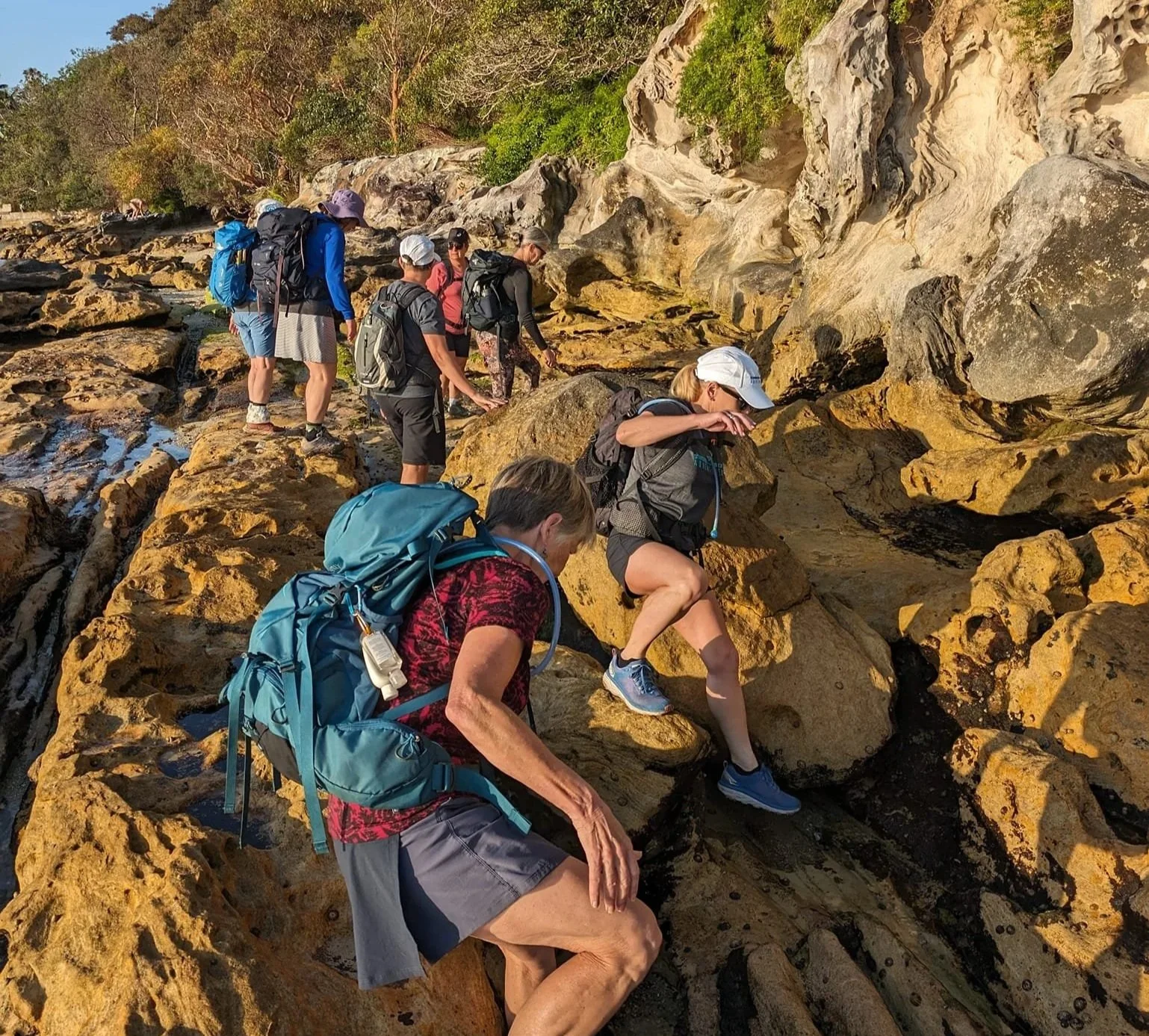Exercise during Menopause - the 4 essentials!
The good news is, women’s bodies and minds are amazing and we can manage change just like we always have, by starting out with these four essentials.
For some women, menopause is the dreaded signal of getting old. Did you know that most women can expect to live 25 years or more after menopause? Committing to lifelong exercise and healthy eating is the first step to getting the most this chapter.
Hiking, best done with good mates!
How would you like to spend the next 5 years… and beyond?
Travel, hike, play tennis, ride a bike, compete in sport, ski, surf, ocean swim, reduce the risk of chronic injury, go on new adventures, go camping, feel strong, be healthy, climb, throw, kayak, run, jump?…yes you can!
If you’ve been active throughout your life, you may need to make a few modifications to your previous exercise patterns because of the changes your body is going through. If you’re just starting out with exercise or coming back to it, now is a perfect time to enhance your future years.
What has been your normal mode of exercise for the past 20-30 years?
If you’ve always loved to push yourself hard, then be prepared to reduce the intensity. Over-training, injury and burn-out are real risk factors post-menopause. More on that later. Instead of focusing on just one type of exercise or sport – variety can allow more recovery and give your changing body what it needs.
Does your current exercise routine include weight bearing activities and whole-body resistance exercises? Building muscle and enhancing bone strength are critical at this stage of life. It’s not enough to just walk or swim or ride a bike. You need more.
Strength and resistance training is essential for healthy muscles and bones.
Are you sleeping well?...and if not, what are the implications for exercise?
Menopause brings with it more than just hot flushes, we can also experience reduced melatonin and high cortisol (stress hormone) levels, all of which can contribute to poor quality sleep. If this is you, it’s important to limit high intensity exercise, especially lifting heavy weights. Because sleep is key to muscle recovery, cell regeneration and improved immunity, you may find your hard work results in your fitness levels going backwards. Take a steady approach to your workouts and progression.
Improve the quality of your sleep by eating early in the evening, so that your insulin levels are stable when you are trying to sleep. Also, nutrients that take longer to digest like protein, should be reduced in your evening meal.
Why is it so challenging to maintain a healthy body weight?
Your basal metabolism (the energy we use when at rest) slows down during menopause. You can raise your basal metabolic rate by increasing muscle size but remember that too much high intensity exercise can increase your cortisol levels resulting in fat storage. Now that’s a juggling act!
Hiking in Mt Kosciuszko National Park
What to expect as progesterone and estrogen levels decrease post menopause?
Muscle size and strength decreases and abdominal fat increases. There is increased bone loss. Stiffness and joint pain increase due to a reduced anti-inflammatory response and a reduction in collagen. Connective tissues become less flexible and joint mobility is reduced. Frozen shoulder becomes common and prolapses are a risk. Cardiac health decreases due to changes in vascular elasticity. And that’s just the physical changes…no mention of brain fog, memory issues and more.
Reduce intensity and build muscle by slowing the pace and building the pack weight.
So, what can women do to age well?
The good news is, women’s bodies and minds are amazing and we can manage these changes just like we always have. You just need to know how? Your weekly routine needs these 4 ESSENTIALS:
Aerobic exercise to improve cardiovascular health
Exercises to build muscle size and strength
Activities to strengthen bones and increase mobility
…And above all fun activities that support your mental well-being.
Coastal rock walking and scrambling is great for balance, mobility and strength.
IN A NUTSHELL!
- prioritise quality sleep
- do weight bearing aerobic exercise such as hiking, running, tennis or golf.
- do strength/resistance exercises such as swimming, kayaking, cycling, weights, yoga, rock climbing and use resistance bands.
- do exercise that increases your joint mobility such as yoga, rock scrambling, dancing and pilates
- do your high intensity exercise in the morning and be more moderate in the evening.
- manage your stress levels with exercise that is fun and gets you puffing.
- be mindful of recovery and watch for over-training, especially if you love high intensity training.
Have fun with friends!
There is no quick fix and like anything worth doing, it’s worth doing even if you do it badly, or inconsistently or reluctantly – don’t look for excuses, just strive to make every week a positive one that enhances your path to ageing well and enjoying this stage of your life and beyond.







